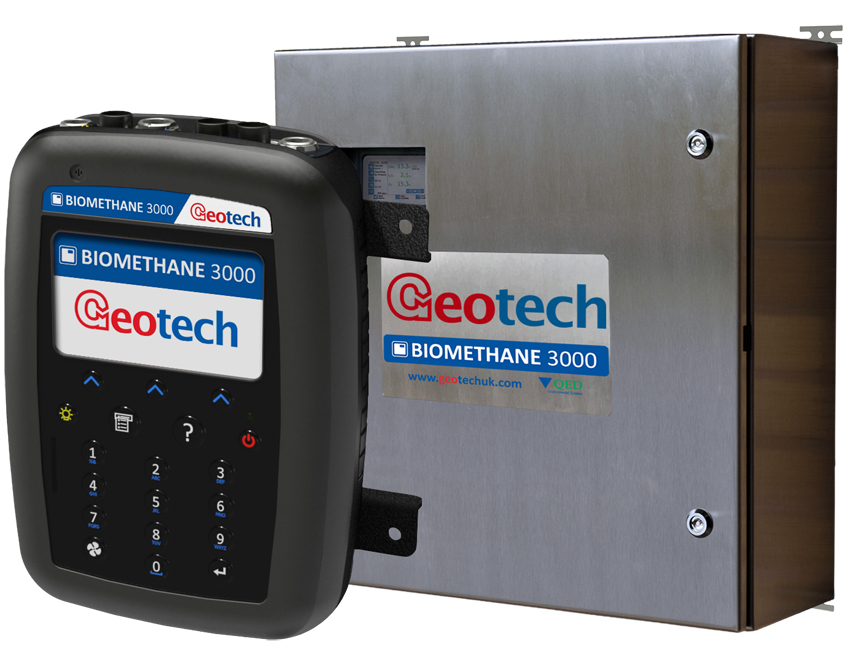QED Says Monitoring Green Gas Should Be Priority Amidst Statements By Chancellor Philip Hammond
Leading manufacturer of environmental monitoring and remediation equipment welcomes UK's Chancellor commitment to decarbonise gas supplies by increasing the proportion of green gas in National Grid

Amidst the waves of positivity that have swept through the anaerobic digestion (AD) industry following this announcement, QED urges AD plant operators and biogas professionals to consider monitoring green gas as a key priority.
The use of gas analysers in AD plants has sometimes been regarded as a ‘nice to have’ – but in reality, analysers are an essential piece of equipment for the safety of a plant and help improve and optimise its biological performance.
As well as improving gas quality, there is an important safety aspect to using gas analysers. Hydrogen sulphide released in the AD process can often damage expensive plant equipment and can be harmful to human health, so ensuring gas is monitored and kept at a low level is vital. AD plants also need to be aware of the oxygen concentrations within systems, too much can have disastrous consequences with the potential for explosion.
Paul Gooch, Sales and Marketing Director, at QED said: “Without an ongoing view of the gas quality, it is difficult to operate a plant to its optimum performance. By keeping an eye on the level of gases in an AD plant, the biogas sector can collectively improve and maintain the quality of green gas being supplied to the National Grid.”
QED’s BIOMETHANE 3000, the flagship product within the Geotech product range, is designed for exactly this. The market-leading BIOMETHANE 3000 has been developed in conjunction with leading plant providers across the world.
It is a fixed in line gas analysis system specifically designed and optimised in response to the changing trend of gas-to-grid injection. It is customisable to individual site requirements and the modular design even facilitates a “hot-swap” system that minimises downtime and simplifies serviceability and onsite maintenance.
The product delivers real time monitoring and remote access to ensure balanced gas composition levels and optimised biofuel for gas-to-grid operations. It also offers the user historical data, enabling trend monitoring. Other key benefits include the onsite calibration, which can take place every 25 minutes if required, again minimising downtime and identifying issues at a significantly earlier stage.
Charlotte Morton, Chief Executive of the Anaerobic Digestion & Bioresources Association (ADBA) said: “ADBA strongly welcomes the Chancellor’s commitment to increasing the proportion of green gas in the grid in order to decarbonise the UK’s heat supply, and the UK’s AD industry stands ready to produce this green gas from the millions of tonnes of organic wastes currently going to incineration or landfill or being left to rot.
“A good understanding of how an AD plant works and how well it is performing is vital for achieving a high level of performance. By monitoring a few basic parameters such as gas, operators can understand how effectively their plant is performing and re-evaluate their operational methods and procedures if needed.
“Gas monitoring is an important part of good practice when running an AD plant and is one of the many criteria included in the AD Certification Scheme, which is the only certification scheme in the UK that assesses the all-round safety, environmental and operational performance of AD plants.”
CONTACT
Saf Sarwar
QED Environmental Systems Ltd
sales@qedenv.co.uk
www.qedenv.com
+44 333 800 0088
Monday 3 June 2019 / file under Environmental | Power | Safety



